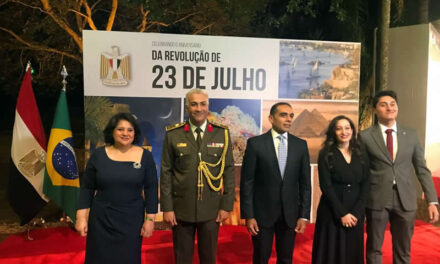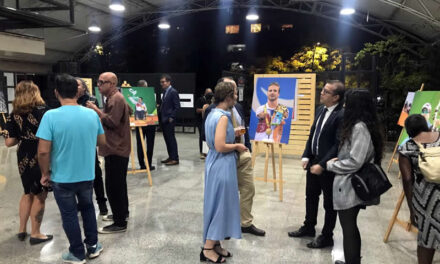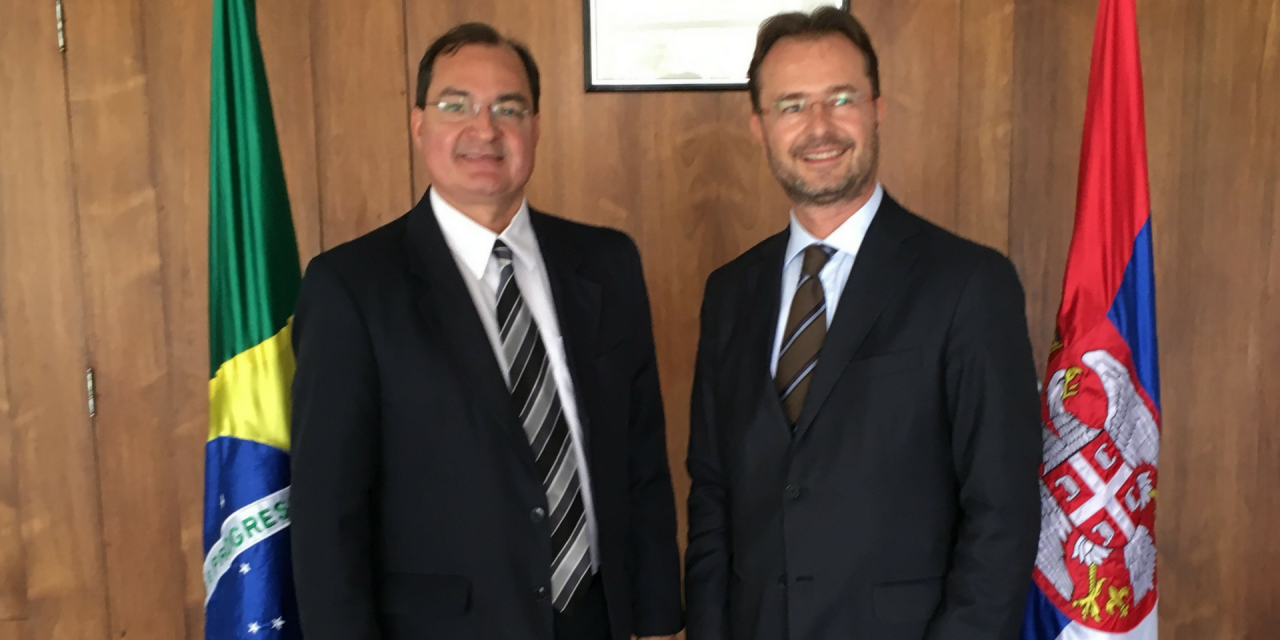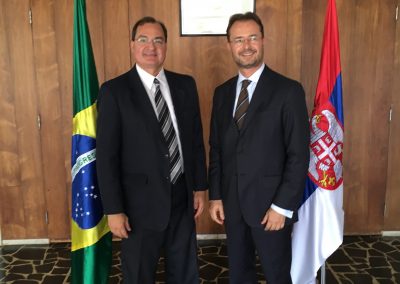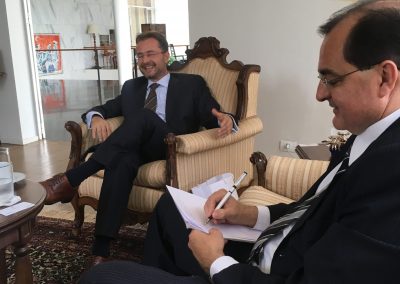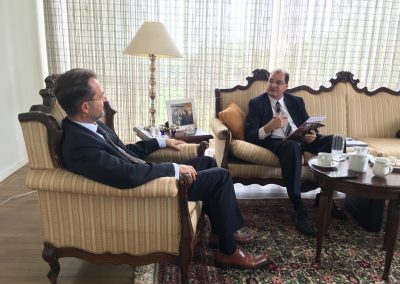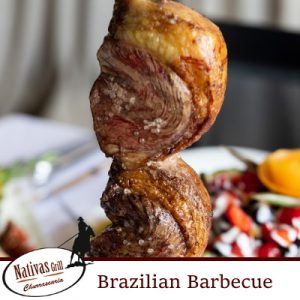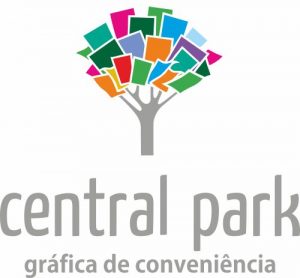On the occasion of the national date of Serbia that will take place on February 15th, on February 2nd, THE GUIDE interviewed the Ambassador of Serbia in Brazil, Mr. Veljko Lazic. The Executive Director of THE GUIDE Mr. Pedro Paulo Moreira and the Business Executive Mrs. Natália Lino were received in the social hall of the Embassy of Serbia, located at Setor de Embaixadas Sul in Brasília. See below our interview.
THE GUIDE: How long have you been in Brazil?
Ambassador Mr. Veljko Lazic: I have been in Brazil for three and a half years. I arrived in 2014. This year 2018, we will celebrate 80 years of diplomatic relations between Brazil and Serbia. A curiosity is that our embassy ((Embassy of the former Yugoslavia) was the first to be inaugurated in Brasilia, in July of 1963. It is the recognition of our great friendship with Brazil. The national date of my country will be celebrated on February 15th and the reception will be on February 22nd, when we will launch an exhibition in the Buriti Palace, here in Brasilia. The exhibition will tell the life of the famous Serbian writer Ivo Andríc. In celebration of this important year, we will also host other cultural events, on dates yet to be confirmed.
THE GUIDE: Did you bring your family?
Ambassador Mr. Veljko Lazic: Yes, I brought my wife and my thirteen-year-old daughter.
THE GUIDE: You speak Portuguese very well, where did you learn? Has your family also learned our language?
Ambassador Mr. Veljko Lazic: I learned Portuguese when I worked at the Embassy of Serbia in Portugal. My wife, who speaks six languages, did not speak Portuguese when we arrived in Brazil, but she learned very fast. My daughter already spoke Italian, which helped her quickly learn Portuguese, nowadays she speaks very well without an accent.
THE GUIDE: Did you come to Brazil directly from Serbia, or were you in service in another country?
Ambassador Mr. Veljko Lazic: We came directly from Rome, Italy.
THE GUIDE: What do you think of Brasilia? Do you consider yourself adapted?
Ambassador Mr. Veljko Lazic: I already consider myself adapted to Brasília’s life. At first it was a big difference for me and my family, but in few months we were adapted. I have lived in Lisbon and Rome, but I have to say: Brasília has the best weather! (laughs) It’s fantastic! The sky of Brasilia is spectacular! The capital of Brazil is one of the largest cities in number of embassies. The diplomatic corps have a very active life. There are many cocktail receptions, which is very good for our fraternization. This gives the diplomats a great quality of life.
THE GUIDE: And has the tourism market grown among our countries? Do Brazilians usually visit Serbia?
Ambassador Mr. Veljko Lazic: Serbia tourism is increasingly developing. The Arab Emirates, for example, are making huge investments in construction in Serbia, especially in Belgrade. Currently we are not yet a strong destination for Brazilian tourists, but we want to become one of the main tourist destinations in Europe. It is worth remarking that Brazilians do not need a visa for up to 90 days in Serbia. The number of Serbs coming to Brazil has also increased. We are to sign a civil aviation agreement with Brazil and with it, the flow of tourists will increase between the two countries.
THE GUIDE: In Brazil, carnival is a popular festival that attracts thousands of tourists. Are there any similar events in Serbia?
Ambassador Mr. Veljko Lazic: In Serbia we have two major cultural festivals: The Exit Festival and the Guca Festival. The Exit Festival, held in the city of Novi Sad, takes place in July and attracts a large young audience because it features a musical program that includes electronic music, rock and pop. The Guca Festival takes place in August in the same village, which is 150 kilometers from Belgrade. This festival presents traditional trumpet music and has a varied audience. These two festivals are not like the Brazilian carnival, but they attract a large number of tourists to my country.
THE GUIDE: How does the education system work in your country?
Ambassador Mr. Veljko Lazic: In Serbia, we have elementary school, which lasts 8 years, and secondary school which lasts 4 years. After the secondary school the student can take a test, similar to the entrance exam in Brazil, to enter in the university. Most of our universities are public and the main ones are in Belgrade, but there are many universities in other cities in Serbia. The young people in Serbia gets to go to college independently of their social class. Our education system is well recognized, mainly in the training of civil engineers, computer science and medicine.
THE GUIDE: What is the predominant religion in your country?
Ambassador Mr. Veljko Lazic: 85% of our population is Cristian Orthodox. We also have other religions in our country such as Catholic, Muslim, among others.
THE GUIDE: About politics, how is your country’s system of government?
Ambassador Mr. Veljko Lazic: We are a parliamentary country. We have a president with protocol functions. The president has a five-year mandate and deputies have four-year mandate. In Serbia, we have direct elections and the citizens can vote from the age of 18, but the vote is not mandatory.
THE GUIDE: Ambassador, we thank you for your hospitality in welcoming us to this interview and we would like to congratulate you and your country for the national date of Serbia.
Ambassador Mr. Veljko Lazic: Thank you very much. It was a pleasure to have your visit at the Serbian Embassy.


